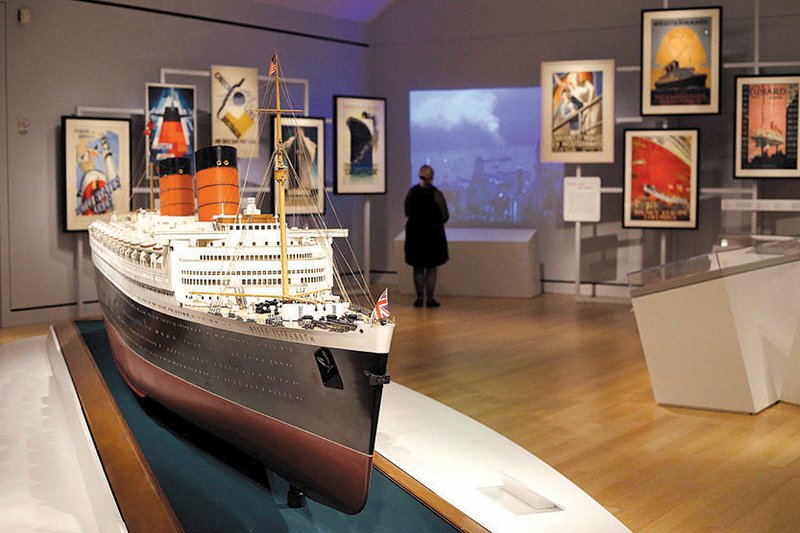SALEM, Mass. — This was the golden era for ocean travel: when ladies wore floor-length ballgowns, sometimes with parasols in hand, and gents donned flared frock coats that gave them an hourglass figure, a style inspired by Prince Albert.
Opulence and beauty were paramount for the cruise liner.
Fans can now relive this bygone era through some telltale relics on display at an exhibit at the Peabody Essex Museum in Salem, which partnered with London’s Victoria and Albert museum for the show.
The exhibit, called “Ocean Liners: Glamour, Speed, and Style,” tells a narrative of society’s love of ocean travel and how these ships evolved over the 100 years they ruled the seas.
“Ocean liners conveyed ideas, they were this special place where anything was possible,” said Daniel Finamore, a curator for the exhibit.
Indeed, glamour, speed and style were ideas with which ocean liners were associated. The public was most fascinated by speed. “The latest ship had to be the fastest,” Finamore said.
There are more than 200 works from the 19th and 20th centuries on display, including textiles, furniture, models, photographs and fashion.
Of course, any visual story about ocean liners wouldn’t be complete without some artifacts from the “unsinkable” Titanic, which broke apart and sank April 15, 1912, after the ship’s captain ignored warnings and steered the boat into an iceberg at speeds meant to impress passengers.
From the Titanic, there is a framed advertisement for second- and third-class bunks available on the voyage from New York back to London. Tickets started at $36.25 for the voyage on April 20, 1912, a trip that never happened.
There’s also a wooden deckchair with broken caning and a piece of hand-carved wooded archway, the largest surviving piece of woodwork from the Titanic. The deckchair and archway piece were found floating in the water near the ship.
For ocean liners, luxury was largely on display during meals. Lunch on the sunken Lusitania, a British ocean liner that was torpedoed by a German submarine in 1915, might include green turtle soup and hindquarters of lamb served on fine china with shiny silver cutlery.
In the exhibit, there also is a 1950 photograph of the actress Marlene Dietrich, wearing a Christian Dior buttoned-up skirt suit waiting to board the Queen Elizabeth, operated by the Cunard Line. Dietrich was an experienced trans-Atlantic tourist. She had a favorite room with a piano that is part of the exhibit.
“Ocean Liners” captures the museumgoer’s imagination and highlights a contrast between ocean travel now and yesteryear, said Richard Griffin, of Salem, who was viewing the exhibit with his wife, Cynthia.
“It’s transporting,” he said. “It is a feeling of being rather than doing, then as opposed to now, when people would just be and luxuriate instead of doing so many things.”
“Ocean Liners: Glamour, Speed, and Style” runs through Oct. 9 at the Peabody Essex Museum. For more information, go to information@pem.org or (978) 745-9500.
